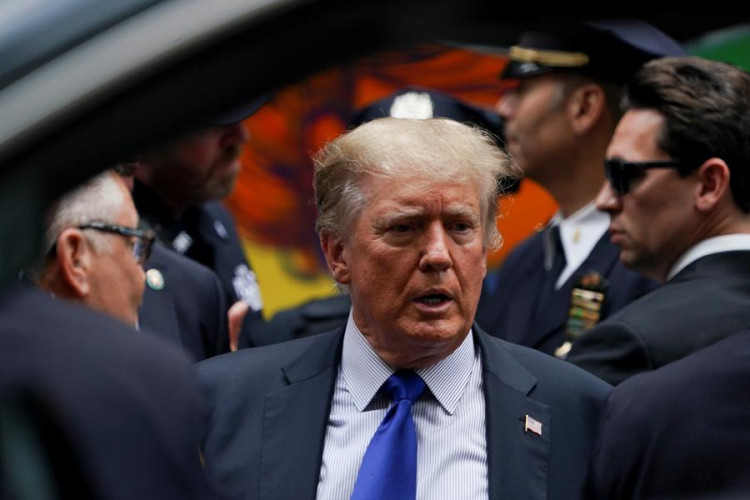In an unprecedented legal event, former President Donald Trump pleaded not guilty on Tuesday to 34 felony counts of falsifying business records. Prosecutors have accused him of masterminding payments to two women before the 2016 U.S. election to suppress news of their sexual encounters with him.
Manhattan prosecutors allege that Trump, the first sitting or former U.S. president to face criminal charges, falsified business records to conceal election law violations during his 2016 campaign. The two women involved are adult film actress Stormy Daniels and former Playboy model Karen McDougal.
Dressed in a dark blue suit and red tie, Trump appeared subdued as he sat at the defense table alongside his lawyers. When asked for his plea, the 76-year-old former president responded, "Not guilty."
Trump, who is currently the front-runner for the Republican nomination in 2024, answered the judge's questions affirmatively, confirming his understanding of his rights. At one point, the judge gestured as if to prompt a response from Trump.
Prosecutor Chris Conroy stated, "The defendant Donald J. Trump falsified New York business records in order to conceal an illegal conspiracy to undermine the integrity of the 2016 presidential election and other violations of election laws."
Falsifying business records in New York is typically a misdemeanor punishable by up to one year in prison. However, when done to advance or conceal another crime, such as election law violations, it becomes a felony punishable by up to four years.
During the arraignment, prosecutors mentioned a series of threatening social media posts made by Trump, including one that warned of "death and destruction" if he were charged. The judge urged both parties to "please refrain from making statements that are likely to incite violence or civil unrest."
Trump remained silent as he entered and exited the courtroom, later flying back to Florida. His office announced he would deliver remarks at 8:15 p.m. on Tuesday (0015 GMT on Wednesday).
Justice Juan Merchan scheduled the next hearing for December 4. Legal experts predict that a trial may not commence for another year, and neither an indictment nor a conviction would legally prevent Trump from running for president.
After the arraignment, Trump's lawyer, Todd Blanche, told reporters that they would "fight it hard." Blanche added that Trump was frustrated, upset, and angry but also motivated, and the charges would not deter or slow him down.
Manhattan District Attorney Alvin Bragg, a Democrat who has been accused by Trump and other Republicans of pursuing the case for political reasons, defended the charges, emphasizing that everyone should stand equal before the law, regardless of their wealth or power.
Outside the courthouse, Trump supporters and opponents were separated by police-erected barricades, though some confrontations occurred. Police officers urged the crowd to remain civil.






